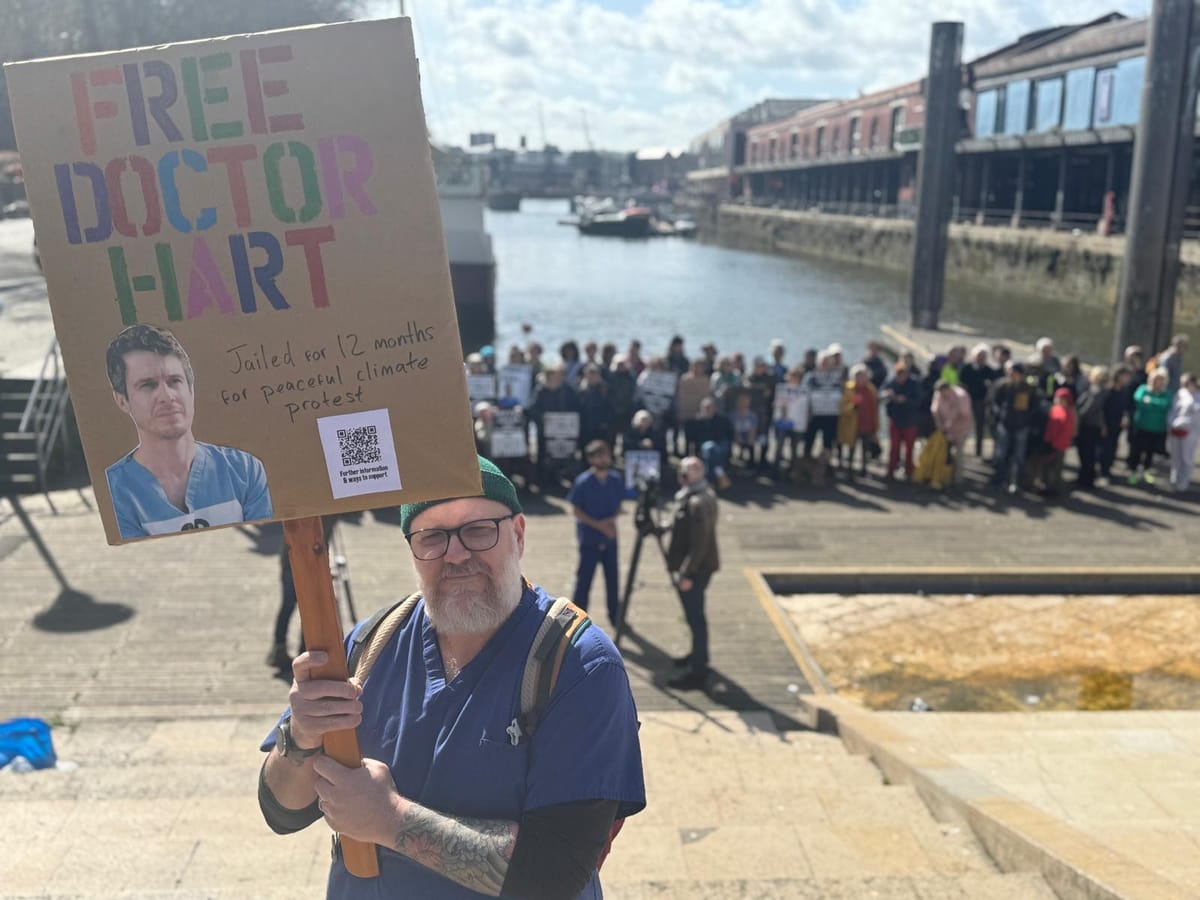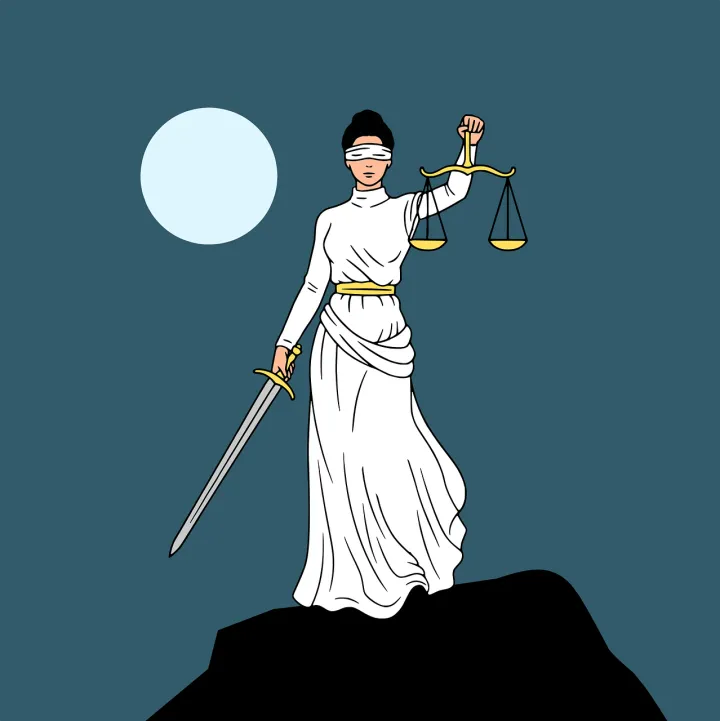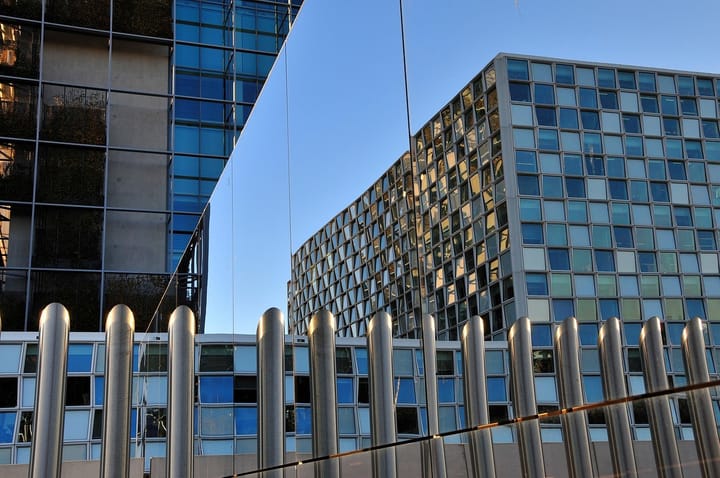Make your courts respect environmental protest rights, UN experts tell states

Make your courts respect environmental protest rights, UN experts tell states
Governments must ensure their judiciaries respect the rights of citizens to push for more ambitious climate action and a just transition to a greener world, UN experts have said.
New guidelines for states, published in October by UN special rapporteur on environmental defenders under the Aarhus Convention Michel Forst, outline how environmental protest is already protected under existing international treaties and court rulings and urge states to shield and even support people who practice it.
Repression of environmental activism is a serious problem around the world, whether people are challenging local environmental impacts or state and corporate climate change measures.
Global Witness’ database documents more than 2,200 killings or long-term disappearances of environmental defenders since 2012, with 146 cases last year alone.
Alongside this, there are signs of an increasing criminalisation of environmental protest, even in countries that had previously had a more tolerant approach.
Direct attack
Forst has previously expressed deep concern about state repression of environmental protest and even non-violent civil disobedience, calling it “a major threat to human rights and democracy”. And he is not the only UN expert raising their voice on this issue.
Ian Fry, special rapporteur for climate change and human rights, previously described long jail sentences for climate protest as a “direct attack” on the right to freedom of peaceful assembly and association.
In another new report, special rapporteur on human rights defenders Mary Lawlor says criminalisation is being used to repress peaceful activism opposing new fossil fuel infrastructure in the Global South and in historically marginalised communities in the Global North, with the infrastructure in question often being developed by companies headquartered in high-emitting states. Domestic legislation is also being used to crack down on people challenging government inaction on reducing emissions, in particular in historically high-emitting states.
She says peaceful defence of human rights is being conflated with criminal activity. “It is seen in its most obvious form in the instigation of spurious criminal proceedings against human rights defenders in retaliation for their work, but can also take the form of smears and baseless criminal designations.” One example is Alicia 'Lali' Chalabe, an Argentinian lawyer who has been harassed after supporting communities fighting against the extraction of lithium from their territories without their consent.
The aim of all this is to delegitimise human rights struggles and discourage activism, says Lawlor. “It is a major and widespread issue when it comes to human rights defenders working on climate change and a just transition.”
Forst's new guidelines stress that protest is protected under the rights to freedom of expression, peaceful assembly and association, as well as the right to participate in decision-making, which are enshrined in legally binding international human rights treaties. And states bear the main responsibility of respecting and facilitating those rights.
Aarhus Convention
The key treaty that the guidelines rely on is the Aarhus Convention, which has been ratified by 47 parties including the UK, Norway, Belarus, Kazakhstan, all members of the EU and the EU itself.
The convention has had tangible successes in shaping environmental law in participating states. And it is thanks to the convention that some climate litigation happened at all. Organisations currently suing the European Commission over its climate targets, for example, were not allowed to challenge these kinds of policies until the Aarhus Convention’s compliance committee forced the EU to change its legal framework.
Beyond its strict remit, the convention has influenced principles adopted by the UN Environment Programme (UNEP) and was a source of inspiration to lawmakers in Latin America in creating the Escazú Agreement which has now been in force for over four years.
The guidelines note that the Aarhus compliance committee has “made it clear” that members of the public have the right to organise or participate in peaceful environmental protest, and must not be “penalized, persecuted or harassed in any way” for doing so. The committee has also held that responsibility for upholding these rights covers “any state body or institution, including those acting in a judicial or legislative capacity”.
Citing key legal rulings from judicial and quasi-judicial bodies including the European Court of Human Rights and the UN Human Rights Committee, the guidelines state forcefully that disruption is not the same as violence, and say that even if some people taking part in a protest turn violent the others should not be tarred with the same brush. And they urge states to stop using inflammatory language about protestors, for example branding them “eco-criminals”.
Necessary and proportionate
The law should not be used to suppress the rights to peaceful environmental protest, say the guidelines, and any restrictions must pursue “a legitimate aim” and be “strictly necessary and proportionate”. That applies to any sanctions meted out to anyone found to be breaking the law as well as the costs of putting up a defence.
They urge states to limit any powers that try to curtail protests before they even happen. This includes the use of civil injunctions by companies, which have proved a serious problem in the UK.
States should also legislate against strategic lawsuits against public participation (SLAPPs), legal threats used to silence activists or journalists which are a growing problem around the world. The EU's new anti-SLAPP law is currently undergoing its first test in a claim brought by Greenpeace International in The Netherlands.
Although judicial independence must be respected, the guidelines say states should ensure that courts act appropriately and they make specific recommendations for law enforcement, prosecutorial bodies, the judiciary itself, judicial oversight bodies and training institutions. For example, national courts “must examine with particular scrutiny the cases where sanctions imposed by the national authorities for non-violent conduct involve a prison sentence”.
Like Forst, Lawlor sees a crucial role for courts in tackling this problem. She calls on governments both to legislate and “to take awareness-raising measures, including among prosecutors and the judiciary, to prevent the misuse of criminal and civil law against human rights defenders, including journalists, working on climate change and a just transition”.
UN experts have expressed growing concern about the increasing repression of environmental protest in recent years - a topic Drilled’s Real Free Speech Threat series covered in great depth.
Latin America remains by far the most dangerous place for environmental defenders, with genuine risks to life and limb. However, threats are growing in wealthy Global North nations that like to portray themselves as bastions of free speech and democracy.
Last week, a protester who vandalised a display case at the US National Gallery of Art was given a “grossly disproportionate” 18-month jail sentence. And a complaint was sent to Forst's office about the alleged penalisation, persecution and harassment of the four protestors in Switzerland who painted a bike path onto a road. In fact, restrictions on civil society are getting so severe that they may be driving climate activists to shift from protest to litigation.
Forst has been particularly concerned with the case of Dr Patrick Hart, a GP from Bristol, UK, who recently had his medical licence suspended for ten months after several convictions for climate activism, one of which resulted in a suspended prison sentence.

Forst's detailed criticism of the UK government was raised under a ‘rapid response mechanism’ set up as the Aarhus Convention was trying to address serious persecution of campaigners in Belarus, as well as wider concern about threats to environmental defenders. But the UK’s response has simply been to repeatedly maintain that environmental protestors do not come under Forst’s remit so there is no issue to respond to.
The new guidelines say public authorities and professional regulatory bodies and associations should not sanction employees or members for taking part in peaceful environmental protest, and if they do this should be “narrowly interpreted”.
The guidelines are voluntary and will not be formally adopted by the parties to the Aarhus Convention. But states have been asked to “welcome” the document in a draft decision currently being worked on ahead of the next formal meeting later this month.



